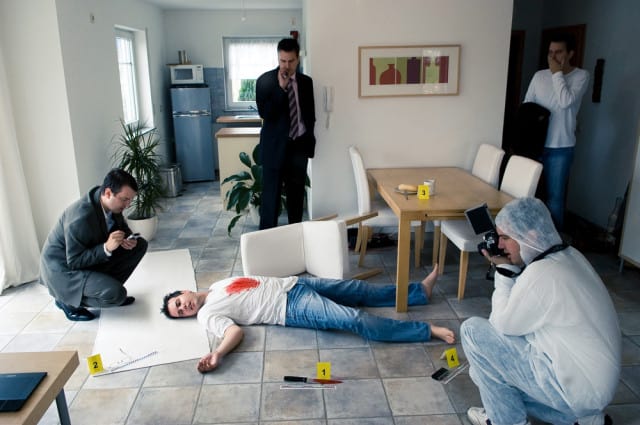KRISTEN MCEWEN
The Carillon (University of Regina)

Unlike on CSI, at a real crime scene not everyone is a jack of all trades who can crack the case in an hour.
REGINA (CUP) — As it turns out, the dramatic crime scene investigations you see on TV are bullshit.
Forensic entomologist Gail Anderson recently stopped by the University of Regina to give a lecture about how studying insects can land you a job like Gil Grissom’s and Ice-T’s, or whoever the new guy is on CSI.
Forensic entomology is the study of insects to determine how much time has passed since a person died. Insects on humans can also be used to reveal if a body has been disturbed at a site, either by animals or by a murderer returning to the scene of the crime.
Anderson is a professor and assistant director at the school of criminology at Simon Fraser University.
She became a certified forensic entomologist with the American Board of Forensic Entomology in 1996 and took her first case in 1998. She is a regular consultant for the RCMP and police services across Canada and occasionally in the United States.
Anderson says that television shows like CSI, NCIS, Dexter and Bones can give the wrong expectations as to how quickly a forensic scientist can work while investigating a crime scene.
“Certainly it’s a bit stupid when Grissom comes in and stares at the fly on the wall and says, ‘Ah yes, [time of death was] three days,” she said. “It sort of belittles the whole thing.”
She said the writers of the shows are inclined to make the characters experts in everything, when in reality it takes an entire team of qualified professionals to carry out the investigation.
It took Anderson 11 years of post-secondary education to get her PhD. She completed an additional five years to be certified as an actual forensic entomologist.
“You can’t be an expert in everything and that’s fine because TV is TV. It’s all for the entertainment, it’s not there to teach us everything. But, unfortunately, the people that are watching are the future jury members or judges and they get very strange ideas of what the job actually is,” she said.
Anderson began teaching her trade in 1992 and has seen the way recent crime shows have distorted her students’ expectations.
“There is so many ways you can get into a career in forensic science, and there’s so many different careers in forensic science, so the students don’t really have a clear directive on how to go about becoming a forensic scientist.”
Anderson said the decomposing remains at homicide scenes don’t affect a person as much as one might think.
“It’s obviously not really for the very squeamish, because you’re dealing with highly decomposed remains,” she said.
“It’s not like I would recognize them if I knew them in life or anything like that. And you know you’re there for a very important purpose and that’s to try and identify this person and catch the bad guy… make sure the police catch the right person, not the wrong person. My work can exonerate as much as it can convict somebody.”
—
Photo: Seagers/Flickr
Leave a Reply